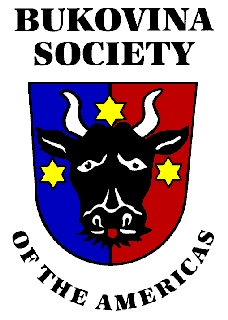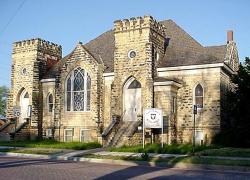 |
The Bukovina
Society of the Americas P.O. Box 81, Ellis, KS 67637, USA Martha McClelland , President info@bukovinasociety.org |
 |
|
|
||
| ||||||
How Our Community of Schwarzthal AroseBy Mathias Hoffmann, Posted on the World-Wide Web by the Bukovina Society of the Americas
on May 16, 2002, Return to the Bukovina On-Line Library Return to Schwarzthal, Bukovina - Village Information and Pictures When the short winter days draw to an end, we gather at this or that neighbor's home for an evening of spinning. The women spin and the men busy themselves with small carvings. Entertainment and humor spice the cozy work hours. On such evenings I would ask our elders about details of our origin and about the founding of our village of Schwarzthal and would gradually glean information about our history, which I now wish to relate. If my tale does not precisely coincide with the facts, I nonetheless believe that I am doing our German people in Bukovina a service, since with the rapid passing of the years and decades, many among us have forgotten whence he comes, how his present homeland developed, and what his ethnic identity and obligations to his German heritage entail. It was in the third decade of the nineteenth century that in the forests of the Bohemian duchy of Schwarzenstein there labored a tough breed of wood cutters, who eked out a tenuous living by lumbering and a little farming with cow or goat. Emperor Joseph often came to this area to go hunting and recognized the ambition and the zeal of the stalwart German Bohemians from Schwarzenstein. It occurred to him to settle these people in sparsely-occupied Bukovina. Through the appropriate channels he offered the Schwarzensteiners settlement in Bukovina with their families. In response, numerous families expressed their interest in undertaking the trip to the southeast. They were joined by Bavarians, who had been similarly recruited for settlement in Bukovina where they were promised land in a place called Goman-Goman, which lay between Solka and Glitt. The Schwarzenstein lumberers were a poor lot and did not even have horses for the trip. With hand-drawn carts laden with their meager household possessions and small children and a deeply-felt trust in God they started off on the arduous journey. At best, one of the spirited travelers could harness a strong dog to his cart. Across mountain and valley, through rain and heat, they walked for six weeks until finally arriving in Radautz. Here they met several acquaintances and rested from the exertions of the journey. In the interval leading to the promised settlement, the men found work as day-wage laborers. Then several assumed the power of attorney for the settlers and set off for Solka where they spoke with the administrator. The latter, however, knew nothing about a settlement of German Bohemian lumberers and asked who had sent them. Their response that the Emperor and the Ministry had precipitated their exodus was greeted by Administrator Koch with a disdainful smirk and the retort that the Emperor is far away; moreover, in this region he, the Administrator, is the Emperor and needs the land for his own people. Very dejected, the men returned to Radautz and were forced to continue working as day-wage laborers to avert economic distress. From day to day their situation became increasingly unbearable and thus after a time they again dispatched another delegation to approach the administrator in Solka to implore him finally to give them a little plot of land. With contemptuous words he directed them to the region of today's village of Schwarzthal. This region was virtually unpopulated and uncultivated. Dense virgin forests covered the heights and valleys with only a narrow path used by hunters which paralleled the stream through the dark forest to the mountains. The task of establishing a settlement here seemed totally impossible, and since the Schwarzensteiners recalled the promise of the Ministry that they would receive arable land for cultivation, they hesitated to settle in Schwarzthal. Again they asked the Administrator to confirm their right to what had been promised. But all intervention remained in vain. No one cared about them. Several times they inspected the land in the region of Schwarzthal but soon returned dispirited and tired to their wives and children in Radautz. In time work in Radautz became hard to find, so the group of immigrants made the heroic decision to attempt settlement in Schwarzthal. They again packed their household items onto their carts and headed for the forest. The first few nights in the dark wild woodlands were terrifying until they had constructed the essential huts of branches and twigs as temporary protection against the elements. Six years had passed since their arrival in Bukovina in 1836 and still the poor people truly stood at the abyss. But their instinct for survival remained unbroken. On the hunters' path along the murmuring stream, they constructed their huts which for a time sheltered the families. The men worked in the forest with common endeavor and cleared land for their houses and a small piece of land for farming. But soon the little cash they had earned as day-wage-laborers in Radautz had been spent and they had to interrupt their work in the forest in order to earn a little money to continue the building of their homes. In their search for work they traveled as far as Dorna. When they again had a "twenty," they returned to their forest huts and began anew. For a "twenty" they got a quarter of corn (c. 25 kilos), with which they barely sustained their families. With courage they approached their tasks. They felled the trees and what they did not use as wood for their domiciles, they burned in great piles. The ashes they strewed on the cultivated soil, which of itself was already very fertile. They built their houses entirely of wood. Such a house was sometimes raised without a single iron nail. The roof was covered with shingles weighed down with large stones to keep them in place during storms. Around the seedlings they placed woven spruce branches to protect them from forest predators. The windows were very small spaces. In time each of the forty-one original families had a house and a piece of land: a surveyor named Altvater started a land registry for the community of Schwarzthal. The soil bore rich yields and with the years a small tax was placed on land. In order to protect against flooding, the villagers built a second street further from the stream. Along this street they constructed new houses in about 1855. The children's education was carried out by a Schwarzthaler, since an out-of-towner could not be obtained. Every day the children received instruction in the home of another villager in that they lacked a school building. By about 1857 they had erected a small church constructed entirely of wood. On their land the Schwarzthalers planted potatoes, beets, barley, peas, corn and flax. Their clothing consisted entirely of hand-woven linen; a well-situated man perhaps had a suit of finer cloth for his wedding. They also sold the flax and bought sheep and cattle. With their wagons they conveyed wooden shingles deep into the flatlands and sold them at the rate of 40 Kreutzers (about 40 lei) for 1000 pieces. In time the standard of living of the Schwarzthalers improved, trade and commerce began to blossom, they acquired water-driven sawmills and found markets for their wood. Johann Seemann and Georg Brantl built the first sawmill in 1862. The poorer people burned ashes, which they then sold to the numerous potash installations, which existed at that time. In 1855 such a potash installation was built in Schwarzthal which operated until 1875. The first water-driven sawmill was built by Franz Bernhauser in 1868. In May of 1885 a great fire broke out in the community. Woodlands burned on both sides of the village but fortunately the houses of the inhabitants could be saved. The first factory in Schwarzthal opened in the upper village in 1889 but after twelve years it was relocated to the lower village, where it remained in use for another eleven years. This much of our history I learned from our elders in the cozy winter evenings. The generations come and go. Forgotten is the desperate struggle for existence of our great grandfathers. But wanderlust, which drove the Schwarzthal Bohemians and Bavarians from their homeland, still courses in the veins of their children. Consistently Schwarzthalers have left their native village and moved to other places in Bukovina: to Sahareschti, to Dumbrava, to Gladiora, Stulpikani, Kimpolung, Gurahumora, Frassin and farther across the great ocean to the United States of America, to Canada and Brazil. Had all these Schwarzthalers stayed at home, the village today be four times its size. The wanderlust of our Schwarzthalers does not preclude the fact that they cling with love to their homeland, for which they have exerted a great effort. Ambition still characterizes our village today. There is repeated evidence of this: in 1905 our Schwarzthalers built a second church and only in the last years did our Schwarzthal church elders decide, despite the need and misery of the time, to give this church a fine facade in order that the house of God might bear witness to the strong faith in our village. And so may our beloved Schwarzthal continue to live and thrive. Mathias Hoffmann, Schwarzthal
(The community seal on the document shows a fir tree with a saw to the left and an ax on the right. Under it the name "Schwarzthal.")
Top of Page Return to the Bukovina On-Line Library Return to Schwarzthal, Bukovina - Village Information and Pictures Detail information about Bukovina Families and Villages
|
|